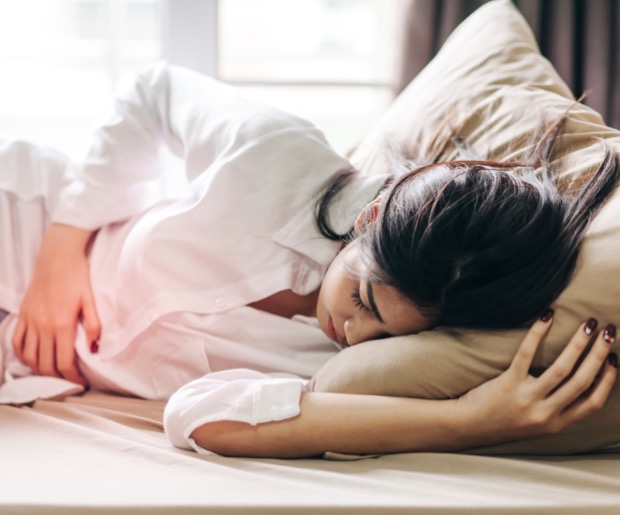Constipation is incredibly common among all ages and populations in the United States. In fact, about
16 out of 100 adults have symptoms of constipation. You're probably familiar with the cramping and bloating associated with infrequent and hard-to-pass bowel movements. But you may not realize that pesky bumps on your face and/or dull skin are also commonly linked to lingering hard stools.
Image via Thnathip Pha Tir Wat'hn / EyeEm/Getty Images
But first, let's back up. What causes constipation?
Given how common it is, it's not surprising that some of the most prevalent causes of constipation are lifestyle choices. "Major causes of constipation include dehydration, lack of fiber, changes in diet, physical inactivity, holding stool and certain medications, such as opioids and antacids," says certified physician assistant, skin care expert and founder of
Element Medical Aesthetics Merry Thornton, PA-C, MBA. "Other causes include blockages in the intestine, underlying diseases such as hypothyroidism, multiple sclerosis and Parkinson's disease, problems with pelvic muscles and pregnancy."
The big problem with constipation is that it inhibits the excretion of toxins and promotes their reabsorption into the body, which is what Thornton says can often lead to breakouts and other skin issues. "Constipation can disrupt the microbiome of the gut, which can have an effect on the skin. A dysregulated microbiome may be associated with skin issues, including acne, psoriasis, eczema and seborrheic dermatitis." She also notes that it can affect the absorption of nutrients, which could possibly affect hair and nail growth.
If you're suffering from occasional constipation, say after a few days of binging on junk food and forgetting about fiber-rich fruits and veggies, don't sweat it. In order to see effects on your skin, Thornton underlines that it typically has to be present for a few months. That said, whether you're suffering from frequent or occasional straining, take action.
"To rectify the problem, increase water and fiber consumption," advises Thornton. "Choose high fiber cereals, fruits and legumes. Avoid processed foods, such as white bread, exercise regularly and avoid holding the urge to defecate. Add probiotics to regulate gut flora." For short-term constipation she also says you may consider adding a stool softener, laxative or enema, but consult with your doctor first.
If lifestyle changes are not enough, see a specialist as there may be a root problem not caused by the most common culprits.

